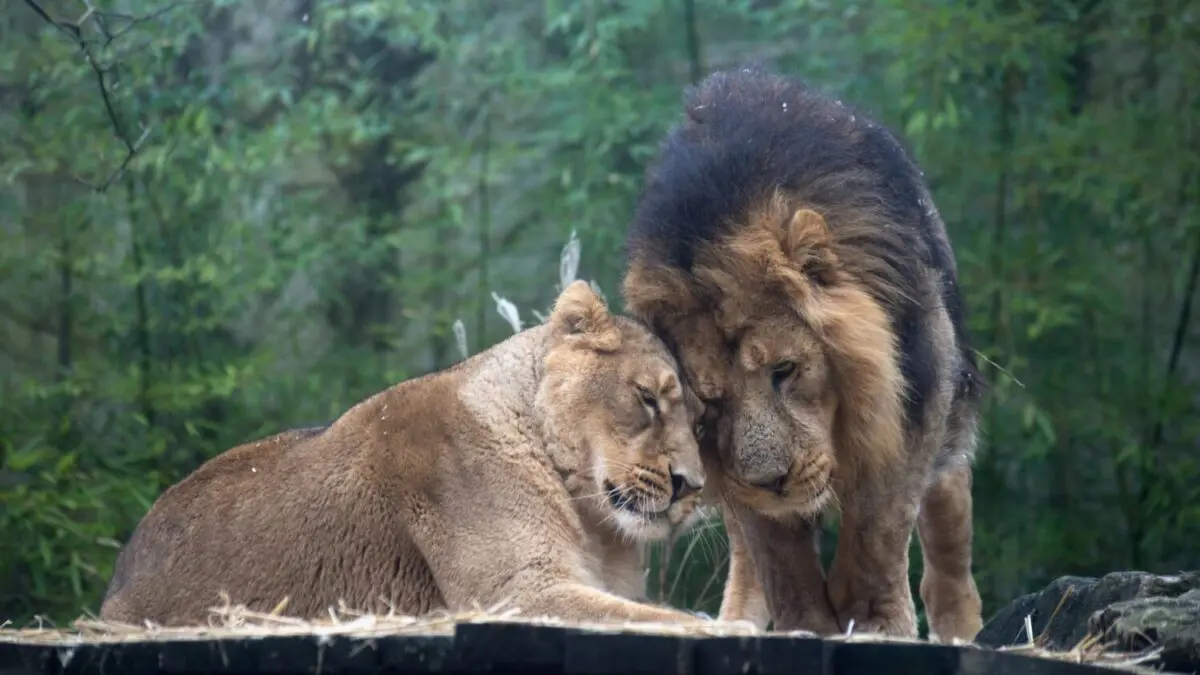For years, scientists have sprayed oxytocin, known as the love hormone, on the noses of lions. The result: royal animals become much friendlier to their neighbors and less often roar against unknown lions.
The study, published in the journal iScience, could provide valuable help amid urban sprawl, forcing some animals to regroup in reserves.
“I’ve always loved lions,” said Jessica Burkhart, a neurologist and lead author of the study. After studying the brains of these animals in a laboratory, she wants to observe them in real life.
While cats have a reputation for being independent animals, lions do not have this trend. They live in groups, conquering and defending territories in the African savannah.
“Male lions, for example, leave their group when they are a few years old, meet other male individuals they do not know, and with whom they will form relationships for life,” explains Burkhart.
Such behavior shows that lions, unlike lone leopards or cheetahs, are biologically programmed to be social in certain situations, making them interesting animals for studying the effects of oxytocin, which strengthens social bonds. It appears in the brain of the mother, who looks into the eyes of her newborn child, causing a sense of happiness and well-being. Some therapists even suggest that couples with marital problems look each other in the eye to release oxytocin.
Similar effects have been observed in other species, such as humans and their dogs.
Jessica Burkhart and her colleagues worked at the Dinokeng Reserve in South Africa, using pieces of meat to lure lions.
To reach the brain directly, the hormone must be injected directly into their noses using something that looks like an old perfume bottle.
Researchers have found that the 23 lions exposed to the hormone were more tolerant of their peers, sharing their space, especially when they have a desired object.
“Oxytocin-exposed lions also no longer roared when listening to recordings of intruders roaring, unlike untreated specimens or others that were sprayed with saline alone,” said Jessica Burkhart.
This reduced aggression towards alien lions is particularly encouraging, according to the researcher, as oxytocin is known to have the opposite effect in humans: although it provokes positive feelings towards loved ones, it can also increase rivalry with outsiders.
According to Jessica Burkhart, the use of oxytocin may be useful in several scenarios.
First, he can help lions rescued from circuses or zoos in military zones, and then housed in reserves.
In addition, lions are facing a growing problem: cities are expanding and entering more and more of their territory. As a result, animal rights activists have to transport them to reserves where unknown groups are forced to communicate with each other. In this case, oxytocin can help prevent conflicts.
Finally, treatment could help return lions to the wild to better adapt to their new social environment, making Burkhart “more curious and less timid.”
However, the treatment also raises concerns that unscrupulous people – like zoo managers described in the documentary series “In the Kingdom of the Beasts” – could use it to allow visitors to pet animals. This practice has been strongly criticized by associations.
“There are indeed corrupt people. However, we can hope that oxytocin will help more than it will harm,” she said.







